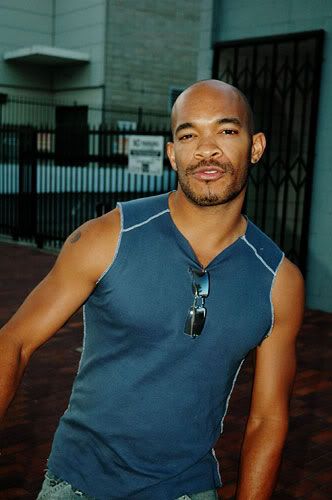Blacks, Latinos Taking Steps to Unify
Wave Newspapers, News Report, Gene Johnson Jr., May 18, 2006
LOS ANGELES — Although they say it may be too soon to tell if there is a new cottage industry of black-brown cooperation, organizers and speakers of two such upcoming conferences on race relations said the Latino and black communities must come to the table to ease escalating tensions.
“The answer is first open and honest communicate to share our feelings,” said Manuel Tijerino, an Inglewood-based minister “We both believe in peace, this is what Jesus has taught us. We have to open our hearts and talk about our differences — with good spirits and good maturity.”
Tijerno will be one of several speakers at an African-American/Latino breakfast sponsored by the Los Angeles County Sheriff’s Multi-Faith Clergy Council at USC May 20, where more than 700 clergy and community leaders are expected to attend.
“During the conference we will hear views pertaining to the issues affecting both communities and jails and how we can effect change for the betterment of both,” said Scottie Gray, a spokeswoman with Los Angeles County Sheriff’s Multi-Faith Clergy Council.
The breakfast, which begins at 9 a.m., takes place at USC’s Town and Gown Conference Center.
Topics include economic empowerment, racial profiling, anger management, changing demographics, domestic violence, joblessness and interracial dating resulting in retaliation.
And, actually, said Bishop Edward R. Turner, director of the Sheriff’s Multi-Faith Clergy Council, Latinos and blacks are “pretty much in the same boat.”
“We face the same issues,” said Turner, who is also running for the 48th Assembly seat. “It would be wonderful us to work together. If we can accomplish this now, it could be duplicated across the country.”
Turner, a 52-year-old native of New Orleans, remembers moving to South Los Angeles about 48 years ago and meeting his neighbors — a Latino family.
“I used to go over to their house and in the backyard swim in their inflatable pool,” he said. “That my introduction to Los Angeles.”
Moreover, Turner scoffed at the idea of having the conference to promote his own political agenda.
“Whether I’m political or not, this is what I do. I’ve been living in this area for 46 years,” he said. “This is my town and I’m concerned about it. It’s time for a change.”Other speakers will include Bishop L. Daniel Williams, president of the Baptist Ministers Conference, Celina Gonzalez, a minister and CEO of Phase 2 Face, a musical ministry.
“The bottom line is that we have an opportunity to make change, and organize the future of our children and our workers with respect, dignity and action,” said Christine Chavez, granddaughter of United Farm Workers founder Cesar Chavez.
Chavez, along with the Rev. Al Sharpton, will be some of the speakers at a national leadership conference scheduled for June 3 at the Omar Ibn Khattab Foundation, directly from USC at Vermont Avenue and Exposition Boulevard.“Coalitions and being united is what is important,” said Chavez, who is also running for the 45th Assembly District seat. “We [blacks and Latinos] may disagree sometimes, but we need to stand together.”Other speakers will include Najee Ali of Project Islamic H.O.P.E. and Earl Ofari Hutchinson of the Los Angeles Urban Policy Roundtable.
“The First National Conference on Latino and African-American Race Relations is not just another conference, it’s a continuation of a movement that was formed in the wake of the controversial LAPD shootings of 13-year-old Devin Brown and 19-month-old Susie Pena,” Ali said.“We’ve [he and Sharpton] at the forefront in dealing Latino and African-American race relations for the past year by working together side-side for peace,” he said.
The national leadership conference, said Ali, has been endorsed by Mayor Antonio Villaraigosa and is supported by Los Angeles City Councilwoman Jan Perry. Participants will include Inglewood Mayor Roosevelt Dorn, State Senator Gloria Romero, Compton Mayor Eric Perrodin and Lynwood Mayor Leticia Vasquez.
This conference will attempt to tackle the same issues as the May 20 such as immigration, jobs, education and gang violence.

